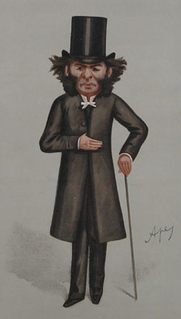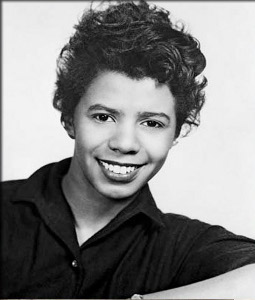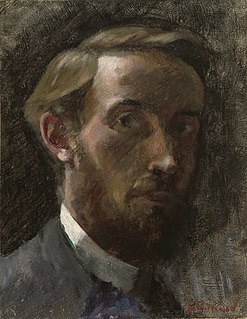A Quote by Samuel Taylor Coleridge
The artist must imitate that which is within the thing, that which is active through form and figure, and discourses to us by symbols.
Related Quotes
But whether I become a believer or remain an agnostic, my belief or disbelief must derive its source from within, not from without. I, myself, must create its symbols. The transcendental is that which produces its own form. I will never discover its secret if I do not find it in my own heart; if I do not possess it already I shall never be able to acquire it.
It reveals us to ourselves, it represents those modulations and temperamental changes which escape all verbal analysis, it utters what must else remain forever unuttered and unutterable; it feeds that deep, ineradicable instinct within us of which all art is only the reverberated echo, that craving to express, through the medium of the senses, the spiritual and eternal realities which underlie them.
...Negroes must concern themselves with every single means of struggle: legal, illegal, passive, active, violent and non- violent.... They must harass, debate, petition, boycott, sing hymns, pray on steps--and shoot from their windows when the racists come cruising through their communities.... The acceptance of our condition is the only form of extremism which discredits us before our children [ellipses in source].
It is not merely the brevity by which the haiku isolates a particular group of phenomena from all the rest; nor its suggestiveness, through which it reveals a whole world of experience. It is not only in its remarkable use of the season word, by which it gives us a feeling of a quarter of the year; nor its faint all-pervading humour. Its peculiar quality is its self-effacing, self-annihilative nature, by which it enables us, more than any other form of literature, to grasp the thing-in-itself.
Silence is the universal refuge, the sequel to all dull discourses and all foolish acts, a balm to our every chagrin, as welcome after satiety as after disappointment; that background which the painter may not daub, be he master or bungler, and which, however awkward a figure we may have made in the foreground, remains ever our inviolable asylum, where no indignity can assail, no personality can disturb us.
I end with a word on the new symbols which I have employed. Most writers on logic strongly object to all symbols. ... I should advise the reader not to make up his mind on this point until he has well weighed two facts which nobody disputes, both separately and in connexion. First, logic is the only science which has made no progress since the revival of letters; secondly, logic is the only science which has produced no growth of symbols.
In this external world, which is full of finite things, it is impossible to see and find the Infinite. The Infinite must be sought in that alone which is infinite, and the only thing infinite about us is that which is within us, our own soul. Neither the body, nor the mind, nor even our thoughts, nor the world we see around us, is infinite.
The quality of light by which we scrutinize our lives has direct bearing upon the product which we live, and upon the changes which we hope to bring about through those lives. It is within this light that we form those ideas by which we pursue our magic and make it realized. This is poetry as illumination, for it is through poetry that we give name to those ideas which are, until the poem, nameless and formless-about to be birthed, but already felt.
Through death you find yourself, because you no longer identify with form. You realize you are not the form with which you had identified neither the physical nor the psychological form of "me". That form goes. It dissolves and who you are beyond form emerges through the opening where that form was. One could almost say that every form of life obscures God.






































